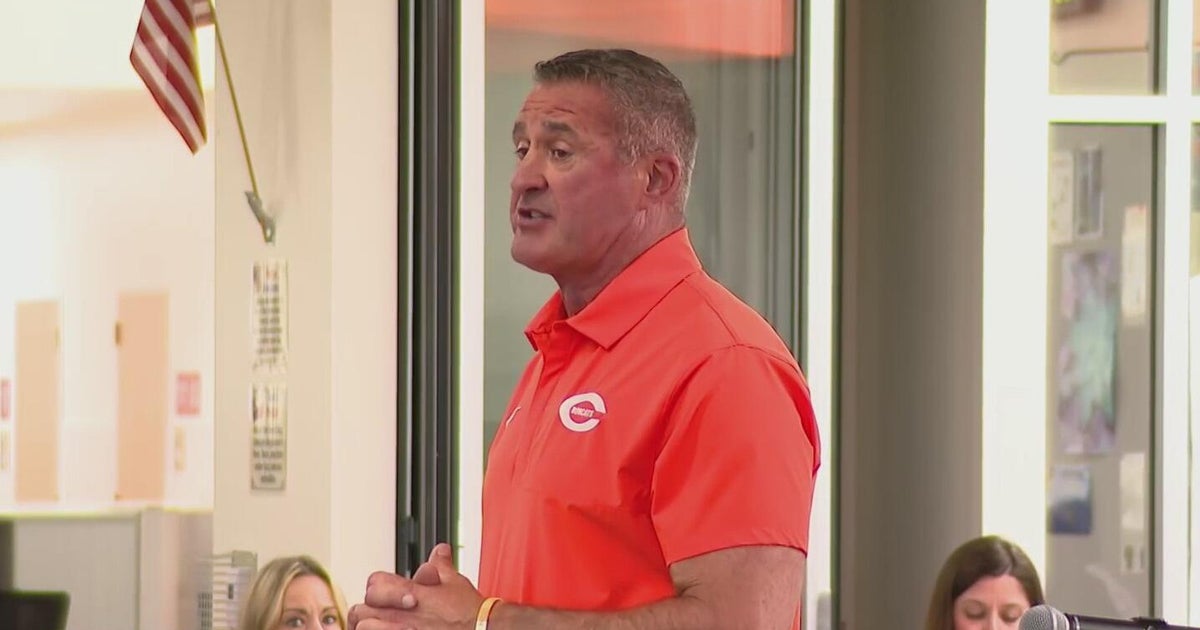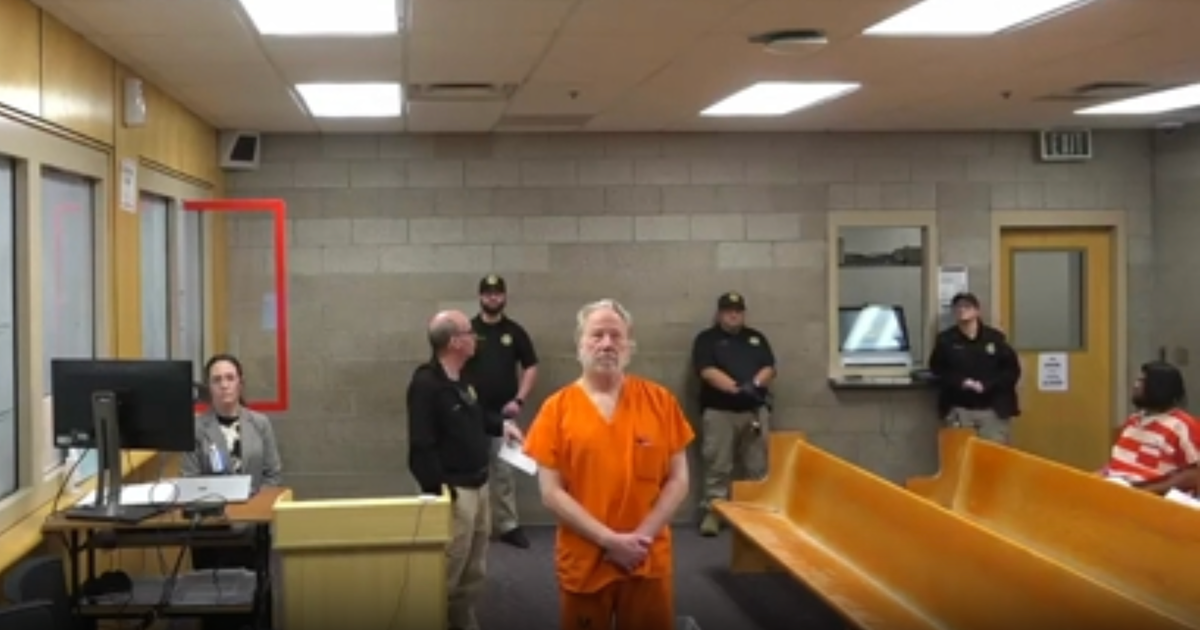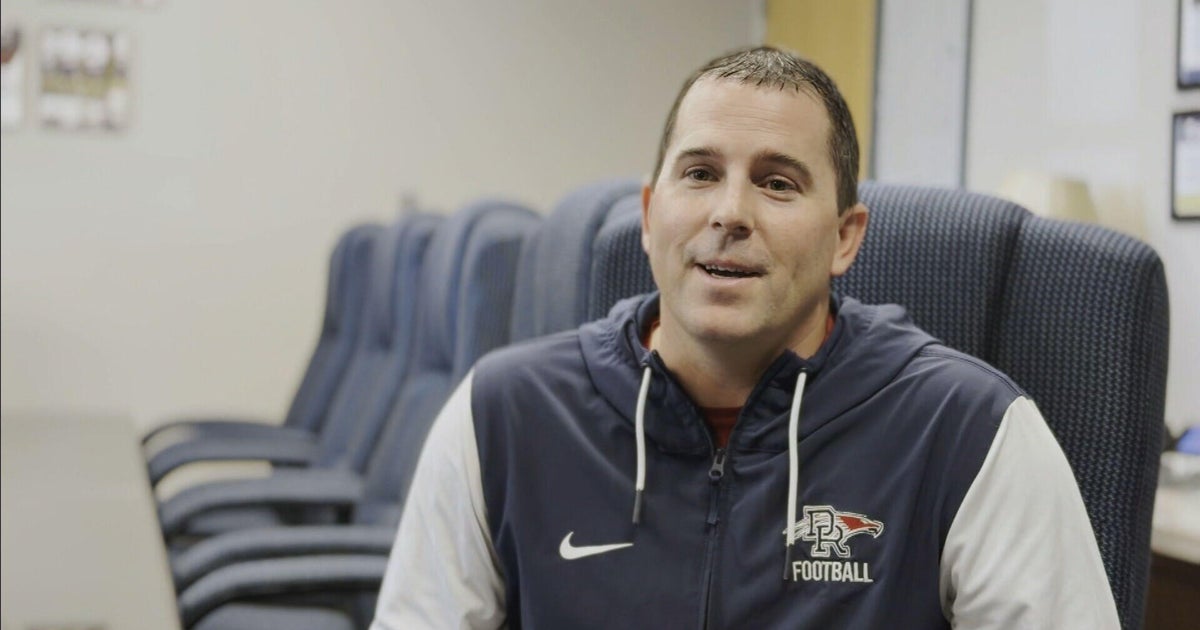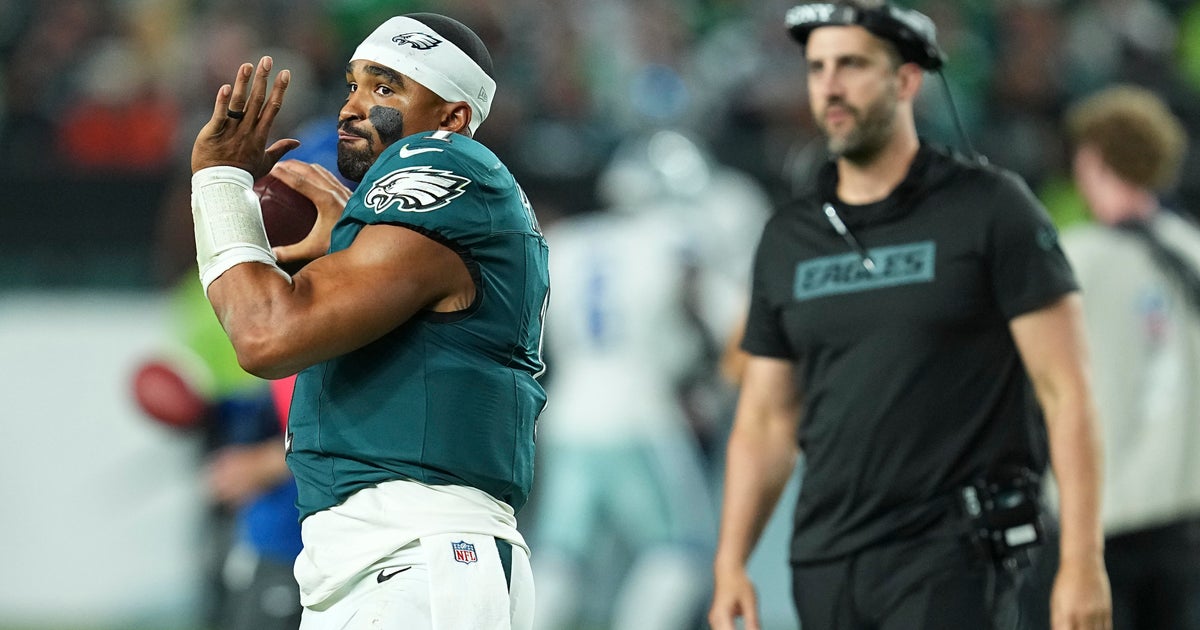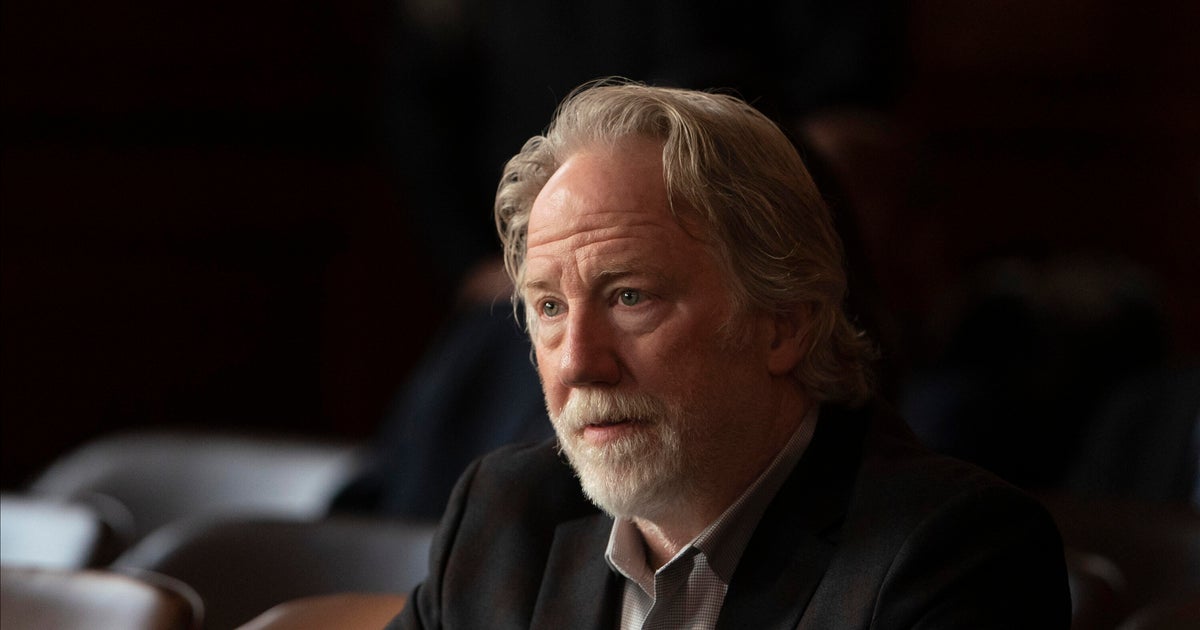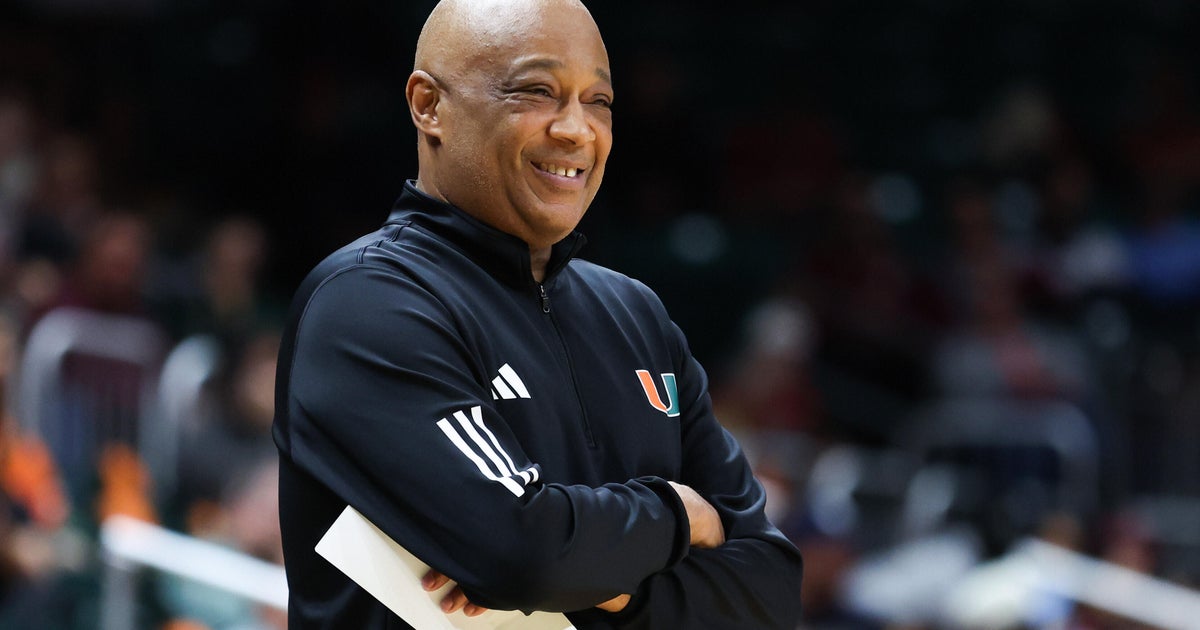Penn State Coach Joe Paterno To Retire At End Of Season
STATE COLLEGE, Pa. (AP) — Penn State football coach Joe Paterno will retire at the end of the season, his long and illustrious career brought down because he failed to do all he could about an allegation of child sex abuse against a former assistant.
"This is a tragedy," Paterno said in a statement Wednesday. "It is one of the great sorrows of my life. With the benefit of hindsight, I wish I had done more."
Paterno has been besieged by criticism since former defensive coordinator and one-time heir apparent Jerry Sandusky was charged over the weekend with molesting eight young boys between 1994 and 2009. Athletic director Tim Curley and vice president Gary Schultz have been charged with failing to notify authorities after an eyewitness reported a 2002 assault.
Paterno decided to retire at age 84, in his 46th season with the Nittany Lions. He won 409 games, a record for major college football, but now, the grandfatherly coach known as "Joe Pa," who had painstakingly burnished a reputation for winning "the right way," leaves the only school he's ever coached in disgrace.
"I am absolutely devastated by the developments in this case," he said. "I grieve for the children and their families, and I pray for their comfort and relief."
But Paterno might not be able to fully control his exit strategy; the school's board of trustees is still considering its options and could force Paterno to leave immediately.
"I have come to work every day for the last 61 years with one clear goal in mind: To serve the best interests of this university and the young men who have been entrusted to my care. I have the same goal today," Paterno said.
"That's why I have decided to announce my retirement effective at the end of this season. At this moment the Board of Trustees should not spend a single minute discussing my status. They have far more important matters to address. I want to make this as easy for them as I possibly can."
Paterno hasn't been accused of legal wrongdoing. But he has been assailed, in what the state police commissioner called a lapse of "moral responsibility," for not doing more to stop Sandusky, whose attorney maintains his client is innocent.
Paterno has been questioned for his apparent failure to follow up on a report of the 2002 incident, in which Sandusky allegedly sodomized a 10-year-old boy in the showers at the team's football complex. A witness, Mike McQueary, is currently receivers coach for the team but was a graduate assistant at the time.
Paterno told the athletic director, Tim Curley, who has since stepped down and has charged with lying to the state grand jury investigating the case. The Penn State vice president has also been charged, and the university president could follow.
But in the place known as Happy Valley, none held the same status as Paterno. And in the end, he could not withstand the backlash from a scandal that goes well beyond the everyday stories of corruption in college sports.
The coach initially defended his decision to take the abuse report to his athletic director and not prosecutors. Paterno said it was obvious the graduate student was "distraught," but said he wasn't told about the "very specific actions" in the grand jury report.
After Paterno reported the incident to Curley, Sandusky was told to stay away from the school, but critics say the coach should have done more — tried to identify and help the victim, for example, or alerted authorities.
"I think it's the right thing," Penn State freshman Jake Schur said. "He didn't do what he should have. He's doing the right thing by stepping down to preserve the Penn State football program.
"It's sad to see it happen under such a bad situation but at the same time everyone was sort of preparing themselves for it."
Paterno's requirement that his players not just achieve success but adhere to a moral code, that they win with honor, transcended his sport. Mike Krzyzewski, the Duke basketball coach, said in June for an ESPN special on Paterno: "Values are never compromised. That's the bottom line."
His sudden departure leaves his fans and detractors wondering who exactly was the real "Joe Pa."
Was he a gentle once-in-a-lifetime leader with a knack for molding champions?
Or was he simply another gridiron pragmatist, a detached football CEO, his sense of right and wrong diluted by decades of coddling from "yes" men paid to make his problems disappear.
It will be a debate for years, and history will decide whether the enduring image will be that of Paterno surrounded by all those reporters as he hurried to practice this week, or his signature look on the sidelines.
Rolled-up khakis. Jet-black sneakers. Smoky, thick glasses. That famous Brooklyn accent that came off only as whiny as he wanted it to be.
"Deep down, I feel I've had an impact. I don't feel I've wasted my career," Paterno once said. "If I did, I would have gotten out a long time ago."
Along the road to the wins record, Paterno turned Penn State into one of the game's best-known programs, and the standard-bearer for college football success in the East.
National titles in 1982 and 1986 — with defenses under Sandusky — cemented him as one of the game's greats. In all, Paterno guided five teams to unbeaten, untied seasons, and he reached 300 wins faster than any other coach.
A year after he arrived at sleepy Penn State in 1966, Paterno began a 30-0-1 streak fueled by players such as Jack Ham and Dennis Onkotz.
But the Nittany Lions fell short in the polls, finishing No. 2 in 1968 and 1969 despite 11-0 records, and No. 5 in 1973 despite a 12-0 record.
In 1969, Texas edged out Penn State for the title with help from an unlikely source: President Richard Nixon declared the Longhorns No. 1 after their bowl game.
"I'd like to know," Paterno later said, "how could the president know so little about Watergate in 1973, and so much about college football in 1969?"
Elite status finally arrived in the 1980s. The Nittany Lions claimed national titles in 1982, with a 27-23 win over Georgia at the Sugar Bowl, and in 1986, intercepting Miami's Vinny Testaverde five times in a 14-10 win at the Fiesta Bowl.
They have made several title runs since then, including the 2005 run to the Orange Bowl and an 11-1 regular-season campaign in 2008 that ended with a trip to the Rose Bowl and a 37-23 loss to Southern California.
"He will go down as the greatest football coach in the history of the game. Every young coach, in my opinion, can take a lesson from him," former Florida coach Urban Meyer said after his last game with the Gators, a 37-24 win over Penn State at the 2011 Outback Bowl. Now Meyer's name will undoubtedly come up in the sweepstakes to replace Paterno.
Paterno's longevity became all the more remarkable as college football transformed into a big-money business.
The school estimated there have been at least 888 head coaching changes at FBS schools since Paterno took the job. He is the all-time leader in bowl appearances (37) and wins (24). And he sent more than 250 players to the NFL.
On Oct. 29, Penn State beat Illinois 10-7, earning Paterno win No. 409, breaking a tie with Grambling State's Eddie Robinson for most in Division I.
All he wanted to do, he had said two days earlier, was "hopefully have a little luck and have a little fun doing it. I've been lucky enough to be around some great athletes."
He said the success came because "the good Lord kept me healthy, not because I'm better than anybody else. It's because I've been around a lot longer than anybody else."
So long, in fact, that it seemed there was no getting rid of him, even as age and injuries crept up and his famous resistance to modern technology — tweeting, texting and other so-called must-haves of 21st century recruiting — turned him into a dinosaur.
But just as much, it was a string of mediocre seasons in the early 2000s that had fans wondering whether it was finally time for Paterno to step aside.
Others questioned how much actual work Paterno did in his later years. He always went out of his way to heap praise on his veteran assistants, especially if an injury help him from getting in a player's face in practice or demonstrating a technique.
"I'm not where I want to be, the blazing speed I used to have," he said in October, poking fun at himself. "It's been tough. ... it's a pain in the neck, let me put it that way."
Paterno cut back on road trips to see recruits. He ended his annual summer caravan across Pennsylvania to exchange handshakes and smiles with alumni and donors.
He often said he never read the newspaper — though the critical comments got back to him somehow. Some suspected his wife, Sue, kept him abreast of the news.
"You guys write stories about how I sit around and don't do anything," Paterno said after watching his 409th victory from the Beaver Stadium press box. "I just hope we can help the team do the things that they want to do."
Still, the question persisted: How much longer was he going to coach?
It was, until this week, the biggest question to dog him. That made him no different from the handful of coaching lifers who stay in the game into their 70s and beyond.
"Who knows," Paterno said with a straight face in October, when he was asked how his latest injuries affected his future. "Maybe I'll go 10 years."
The terms of his departure conflict significantly with the reputation he built over nearly a half-century of turning a quaint program into a powerhouse with instant name recognition.
He made it to the big-time without losing a sense of where he was — State College, population 42,000, a picturesque college town smack-dab in the middle of Pennsylvania.
Paterno and his wife, Sue, raised five children in State College. Anybody could ring up his modest ranch home using the number listed in the phone book under "Paterno, Joseph V." Anybody could walk up to offer good luck as he walked to home games.
Former players would parade through his living room, especially on a busy game weekend, for a chance to say "Hello."
For the most part, Paterno shunned the spotlight, though he had a knack for making a joke that could instantly light up a room.
"You guys have to talk about something. The fans have to put something on those — what do you guys call those things, Twittle-do, Twittle-dee?" Paterno cracked at one Big Ten media day.
He was referring, of course, to the social media site Twitter — and no, the technology-averse Paterno didn't have his own account.
Paterno had no qualms mocking himself or the media, with which he could be abrasive at times. Stubborn to a fault, Paterno also had his share of run-ins with his bosses or administrators, as might be expected for someone who has spent decades with the same employer.
His status didn't make him immune from external criticism. As his reputation grew, so did the spotlight on his on-field decisions and program as a whole.
In 2002, following a stretch of run-ins with officials over controversial calls, an effigy of a football official, yellow flag in hand, was seen hanging on the front door of Paterno's home. Though he never said how the doll got on the door, Paterno hinted his wife, Sue, might be responsible, and it was all done in fun.
After he started the 21st century with four losing seasons in five years, Paterno faced growing calls for his dismissal — once considered heresy in Happy Valley — during the 2004 season.
The next year, Penn State went 11-1 and won the Big Ten. The Nittany Lions capped the campaign with a thrilling 26-23 win in triple overtime at the Orange Bowl against Florida State and Paterno's longtime friend coach Bobby Bowden.
Following a messy split, Bowden left the Seminoles after the 2009 season after 34 years, finishing with 389 wins.
Asked in 2010 whether any contemporary coach would stick around as he and Paterno had, Bowden said: "Not likely. It doesn't seem to be the style nowadays." He cited high salaries and the demands that come with the big paycheck as reasons, along with the allure of professional coaching.
"And there doesn't seem to be the desire to stay in it as long as Joe and I have had," Bowden said.
To be sure, Paterno has had other opportunities — and they didn't all have to do with coaching. A 1950 graduate of Brown University, Paterno said his father, Angelo, hoped his son would someday become president. Paterno himself had plans to go to law school.
He also played football at Brown. A quarterback and cornerback, Paterno set a defensive record with 14 career interceptions — a distinction he boasts about on occasion to his team.
Law school never materialized. At 23, he was coaxed by Rip Engle, his former football coach at Brown, to work with him when Engle moved to Penn State in 1950.
"I had no intention to coach when I got out of Brown," Paterno said in 2007 at Beaver Stadium in an interview before being inducted into the Hall of Fame. "Come to this hick town? From Brooklyn?"
In 1963, a fellow Brooklyn native, the late Al Davis, became the general manager-coach of the Oakland Raiders of the AFL and offered Paterno the job of offensive coordinator. He turned Davis down in spite of an offer to triple his salary to about $18,000 and a new car.
Three years later, Paterno took over as Penn State's head coach after Engle retired. The New England Patriots offered Paterno the head-coaching job in the early 1970, only to be rebuffed.
When Engle and Paterno arrived, Penn State had seen three coaches in three years and had an offense made up mostly of walk-ons. Engle never had a losing season at Penn State, but when Paterno took over in 1966, the Lions still were considered "Eastern football" — in other words, inferior.
(© Copyright 2011 The Associated Press. All Rights Reserved. This material may not be published, broadcast, rewritten or redistributed.)
